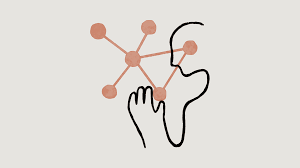Anthropic Introduces Visual PDF Analysis with Claude 3.5 Update
By admin | Nov 03, 2024 | 3 min read

Anthropic has made a significant leap in document processing with the introduction of PDF support in its latest Claude 3.5 Sonnet model. This enhancement aims to bridge traditional document formats with advanced AI analysis, empowering organizations to utilize sophisticated AI capabilities in their existing document workflows.
Bridging the Gap in Document Processing
As businesses increasingly require effective solutions for handling complex documents that incorporate both text and visuals, this update positions Claude 3.5 Sonnet as a leader in comprehensive document analysis. The integration arrives at a crucial time in the evolution of AI document processing, addressing the prevalent use of PDF as the standard format for business documentation.
Technical Capabilities of PDF Processing
The newly integrated PDF processing system operates through a three-phase methodology:
- Text Extraction: The system extracts textual content while preserving the document's structure.
- Visual Processing: Pages are converted into image format to analyze visual elements like charts, graphs, and embedded figures.
- Integrated Analysis: This phase merges both text and visual data, allowing for a nuanced understanding of the document.
With this multi-layered approach, Claude 3.5 Sonnet can tackle complex tasks such as analyzing financial statements, interpreting legal documents, and translating documents while retaining contextual coherence across all content types.
Implementation and Access Channels
The PDF processing capabilities can be accessed through two main avenues:
- Claude Chat Feature: Available for direct user interaction in a preview mode.
- API Access: Utilizing the specific header “anthropic-beta: pdfs-2024-09-25”.
The system supports document sizes of up to 32 MB and a maximum of 100 pages, ensuring effective processing across various document types used in professional settings.
Future Integration Plans
Anthropic plans to expand its PDF processing capabilities with integration into platforms like Amazon Bedrock and Google Vertex AI. This move aims to enhance accessibility and interoperability, allowing organizations to incorporate these advanced capabilities into their existing technology frameworks seamlessly.
Practical Applications Across Sectors
The PDF processing enhancement unlocks new possibilities across numerous sectors:
- Financial Institutions: Automate the analysis of annual reports, prospectuses, and investment documents.
- Legal Firms: Streamline contract reviews and due diligence processes.
- Educational Institutions: Improve document translation for multilingual academic papers and research documents.
- Research Organizations: Benefit from enhanced interpretation of scientific publications and technical reports.
The ability to analyze both textual and visual elements makes this technology especially valuable for industries that rely heavily on data visualization and technical documentation.
Technical Specifications and Limitations
To effectively implement the PDF processing feature, users should be aware of its parameters:
- File Size: Documents must be under 32 MB.
- Page Limit: A maximum of 100 pages is allowed.
- Security: Encrypted or password-protected PDFs are not supported.
The processing cost operates on a token-based model, with consumption ranging from 1,500 to 3,000 tokens per page, integrated into standard pricing without additional fees.
Optimization Guidelines
To maximize the effectiveness of the PDF processing system, the following optimization strategies are recommended:
- Document Preparation: Ensure text clarity, proper page alignment, and standard numbering.
- API Implementation: Position PDF content before text in API requests and segment larger documents when needed.
These practices will enhance processing efficiency, particularly for complex or lengthy documents.
Conclusion
The launch of PDF processing capabilities in Claude 3.5 Sonnet represents a substantial advancement in AI document analysis, addressing the growing need for sophisticated yet accessible document processing solutions. As organizations continue to digitize their operations, this technology, along with planned expansions, has the potential to transform how businesses manage and analyze their documents.
With its comprehensive understanding capabilities and clear operational parameters, Anthropic's Claude 3.5 offers a promising solution for organizations aiming to elevate their document processing efforts through AI innovation.
Comments
Please log in to leave a comment.




No comments yet. Be the first to comment!